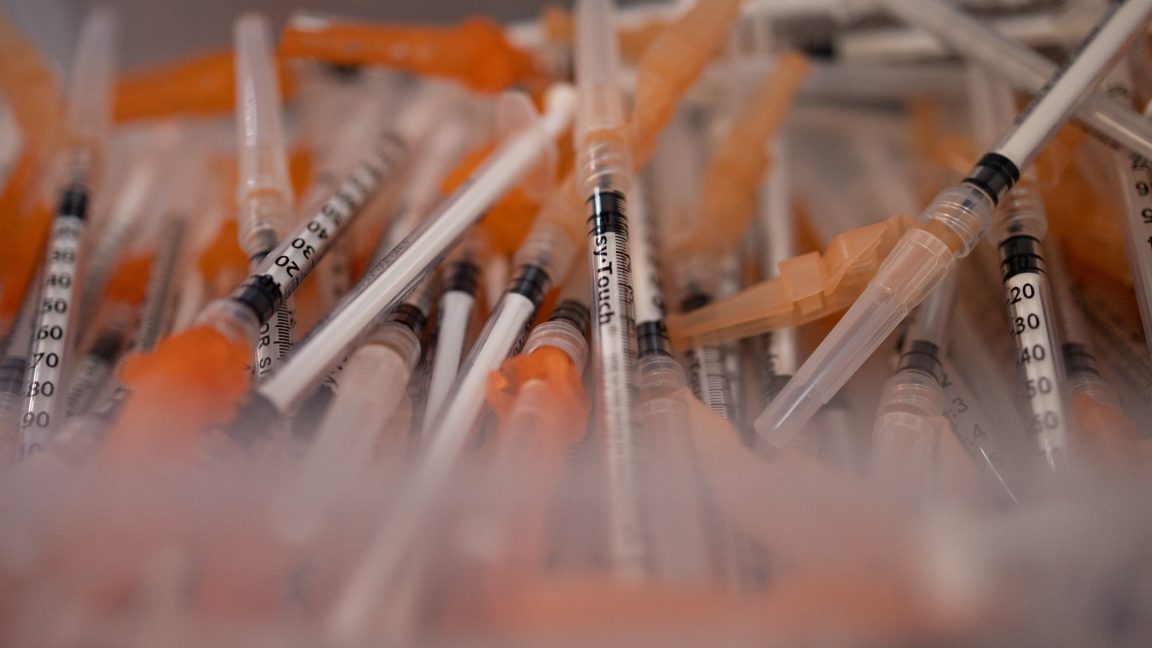Under President Trump, the Food and Drug Administration may no longer approve seasonal COVID-19 vaccines updated for the virus variants circulating that year, according to recent statements by Trump administration officials. Since the acute phase of the pandemic, vaccine manufacturers have been subtly updating COVID-19 shots annually to precisely target the molecular signatures of the newest virus variants, which continually evolve to evade our immune responses. So far, the FDA has treated these tweaked vaccines the same way it treats seasonal flu shots, which have long been updated annually to match currently circulating strains of flu viruses.
The FDA does not consider seasonal flu shots brand-new vaccines. Rather, they're just slightly altered versions of the approved vaccines. As such, the regulator does not require companies to conduct lengthy, expensive vaccine trials to prove that each slightly changed version is safe and effective.

If they did, generating annual vaccines would be virtually impossible. Each year, from late February to early March , the FDA, the Centers for Disease Control and Prevention, and the World Health Organization direct flu shot makers on what tweaks they should make to shots for the upcoming flu season. That gives manufacturers just enough time to develop tweaks and start manufacturing massive supplies of doses in time for the start of the flu season.
So far, COVID-19 vaccines have been treated the exact same way, save for the fact that the vaccines that use mRNA technology do not need as much lead time for manufacturing. In recent years, the FDA decided on formulations for annual COVID shots around June, with doses rolled out in the fall alongside flu shots. However, this process is now in question based on statements from Trump administration officials.
The statements come amid a delay in a decision on whether to approve the COVID-19 vaccine made by Novavax, which uses a protein-based technology, not mRNA. The FDA was supposed to decide whether to grant the vaccine full approval by April 1. To this point, the vaccine has been used under an emergency use authorization by the agency.
New requirements But, political staff at the agency decided to delay the approval, according to Politico . On Friday, The Wall Street Journal reported that the FDA is now asking Novavax to conduct a new randomized controlled trial to prove the vaccine's efficacy, which could cost tens of millions of dollars and would take many months at least. An earlier version of the vaccine was already found to be 90 percent effective against COVID-19 in a phase 3 trial with nearly 30,000 people.
On Saturday, Marty Makary, FDA Commissioner for the Trump administration, seemed to confirm the Journal's reporting . In a social media post, Makary wrote: "To be clear, this is a new product that Novavax is trying to introduce to the market with a study of a different product from 2021. New products require new clinical studies.
" In a clarifying statement, Andrew Nixon, the Department of Health and Human Services’ director of communications, provided a statement saying: "It’s now been years since Covid has presented the threat it once did, and the urgency to rush approval of boosters without normal oversight no longer exists." "A four-year-old trial is also not a blank check for new vaccines each year without clinical trial data, unlike the flu shot which has been tried and tested for more than 80 years,” he added. Stat News asked an HHS official if makers of mRNA COVID-19 vaccines—Pfizer and Moderna— would also need to perform new clinical trials to have their updated shots approved.
The official, speaking on condition of anonymity, left open the possibility, responding: "We will evaluate the data and make that determination with FDA’s review process as they submit their applications.".
Technology

Seasonal COVID shots may no longer be possible under Trump admin

FDA was supposed to decide on Novavax vaccine by April 1, but it now wants more data.















